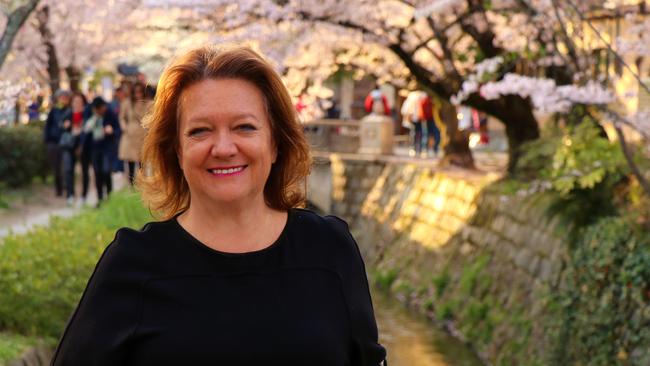Michael McGuire: Pandemic has helped the rich and kicked the poor. It’s time for fairness
The gap between the richest and poorest Australians is growing. The wealthy have a duty to contribute more to the country that has given them so much, writes Michael McGuire.
Opinion
Don't miss out on the headlines from Opinion. Followed categories will be added to My News.
The growing gap between rich and poor is an increasing moral challenge for Australia. Last week saw the publication of another “rich list” of Australians who are worth billions.
These lists are an easy way to drag eyeballs to newspaper and websites. The numbers are staggering and, depending on your point of view, provoke either admiration, inspiration, jealousy, anger or mistrust of the system.
This time it was the Australian Financial Review totting up the numbers and declaring miner Gina Rinehart was Australia’s richest person, her net worth coming in at more than $34bn, up about $3bn from last year. Second was another miner in Andrew Forrest, whose net worth was estimated at more than $30bn.
Overall, according to the AFR, Australia’s richest 200 people were now worth about $555bn, up from $480bn in 2021. That’s a nice rise of 15 per cent or so.
There is no doubt the Covid-19 pandemic has been very good to some. Not just in Australia, but globally the very wealthy have become even wealthier in the past two years. According to a report from charity Oxfam, the wealth of the world’s richest men doubled during the pandemic.
These numbers seem obscene to me.
Maybe it’s just because last week I wrote a story about how charities such as AnglicareSA, Foodbank and Puddle Jumpers are struggling to keep up with demand. That people, many of whom have a job, are struggling to keep up with rising grocery bills, record high petrol prices, rents going up and mortgage payments going up. All the while, real wages are going backwards.
And the official inflation numbers are even worse than you think. The Reserve Bank of Australia last month said inflation was now 5.1 per cent. That number is made up of discretionary and non-discretionary items. A discretionary purchase could be a car or a biscuit. Those items went up by 2.7 per cent. Non-discretionary items – that is the basics, bread, milk, rent – went up by a record 6.6 per cent.
So, while the AFR is writing stories about the rich getting richer, the other side of the coin is the poor are getting poorer.
It’s hard not to be effected when a disability support pensioner such as Kerry Engleson breaks down telling you about how they put their last $10 in the petrol tank and she has trouble finding enough food for the kids.
For a country that likes to pretend it has an egalitarian core, the disparity between rich and poor is becoming so great that it will ultimately damage our country.
It seems obvious that vast wealth is a result of social and policy failure. This is not about Rinehart or Forrest but what is the point of anyone hoarding so much wealth? It’s wealth mainly built on the hard work of others. In the case of Rinehart and Forrest it’s wealth built on the natural resources of this country.

Yes, they pay royalties, they pay some taxes as well, and Forrest has a charitable arm, but clearly this is a pittance compared with the money they are making. They should be paying more. They should be contributing more back to the society on which they have built this ridiculous wealth. It’s a basic question of fairness.
There needs to be some form of wealth tax imposed on Australia’s richest people. Would it really make any difference to Rinehart’s lifestyle if she were worth $10bn or $20bn less? It’s also all too easy for the ultra-wealthy and the biggest corporations to avoid paying their fair whack – or even as much as your average worker pays every week or month to the tax office.
Figures released by the Australian Taxation Office late last year showed one third of big business paid no tax in the 2019-20 financial year. This was mostly through loopholes that allow these companies to claim losses run up in previous years.
Multinationals such as Facebook (Meta) and Google also pay minimal amounts of tax, using elaborate accounting tricks to divert money offshore before it comes to the attention of the local tax office.
It doesn’t seem too much to ask, for corporations to pay an equitable amount of tax and for the ultra wealthy to contribute a little more. Even the Conservative Party in England last week introduced a “windfall’’ tax on energy companies, which it will use to help alleviate the cost-of-living crisis there.
It’s not about punishing companies or individuals. The economy needs healthy, strong companies. It needs companies with new ideas to provide decent jobs. It needs companies that are prepared to invest.
That all needs to be encouraged, but there must also be fairness in the system.
The British government’s windfall tax on companies making enormous profits on rising fuel prices was pilloried initially by the usual suspects as being bad for business and a brake on investment. That was until BP chief Bernard Looney said the company’s plan to invest $32bn in the UK would not be changed by a windfall tax.
Australia is facing a cost-of-living crisis and needs to invest more in health care, all the while trying to pay down a trillion dollar debt. It’s reasonable to ask those who have benefited the most from Australia to contribute a little more.
Australia is more than an economy, it is a society and a community.



